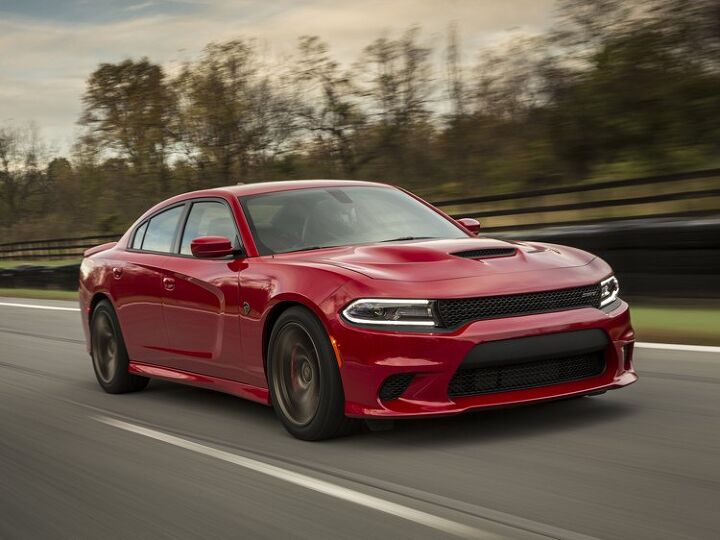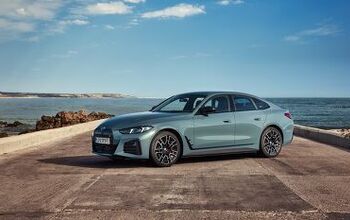As Sales Flatline, Fiat Chrysler Launches New Dealership Blitz: Report

Fiat Chrysler Automobiles rocketed out of the recession with year-over-year U.S. sales increases, eventually erasing the sudden deficit of buyers that led to its bankruptcy. Between 2009 and 2015, the resurgent automaker went from a measly 931,402 U.S. sales to a healthy, cash-generating 2,243,907.
Those gray skies sure did clear up. Happy days!
Now for last year’s sales tally: 2,244,315. Notice something unusual? That’s right, FCA tacked on just 408 sales in 2016 compared to a year prior. While sales growth can’t be counted on like the rising and falling of the sun, especially in a market that has reached a tentative plateau, it’s nonetheless concerning for FCA. The sales juggernaut sits idle in the water, yearning for headway.
Is the automaker’s problem simply that there aren’t enough places to buy Jeep, Dodge, Chrysler, Ram and Fiat vehicles?
With about 2,500 dealerships scattered throughout the union, most would answer that question with a solid “no.” However, that isn’t stopping FCA from adding an extra 400 dealers to its network, Automobile News reports.
Two dealer sources, as well as one within the company, claim that the expansion is already underway in several markets, including Houston. The new dealer push is all about protecting FCA’s market share, they claim. One remarked that the extra dealers were needed five years ago.
The automaker hasn’t confirmed the plan.
FCA’s fourth-quarter earnings report, released this week, painted a less-than-rosy picture for the automaker. Its share of the U.S. market fell to 11.3 percent by year’s end — a loss of 1.5 percent compared to third-quarter results. General Motors, Toyota and Ford loom far ahead.
For FCA, more presence from an expanded dealer network is as good an idea as any.
[Image: Fiat-Chrysler Automobiles]

More by Steph Willems
Latest Car Reviews
Read moreLatest Product Reviews
Read moreRecent Comments
- Slavuta Autonomous cars can be used by terrorists.
- W Conrad I'm not afraid of them, but they aren't needed for everyone or everywhere. Long haul and highway driving sure, but in the city, nope.
- Jalop1991 In a manner similar to PHEV being the correct answer, I declare RPVs to be the correct answer here.We're doing it with certain aircraft; why not with cars on the ground, using hardware and tools like Telsa's "FSD" or GM's "SuperCruise" as the base?Take the local Uber driver out of the car, and put him in a professional centralized environment from where he drives me around. The system and the individual car can have awareness as well as gates, but he's responsible for the driving.Put the tech into my car, and let me buy it as needed. I need someone else to drive me home; hit the button and voila, I've hired a driver for the moment. I don't want to drive 11 hours to my vacation spot; hire the remote pilot for that. When I get there, I have my car and he's still at his normal location, piloting cars for other people.The system would allow for driver rest period, like what's required for truckers, so I might end up with multiple people driving me to the coast. I don't care. And they don't have to be physically with me, therefore they can be way cheaper.Charge taxi-type per-mile rates. For long drives, offer per-trip rates. Offer subscriptions, including miles/hours. Whatever.(And for grins, dress the remote pilots all as Johnnie.)Start this out with big rigs. Take the trucker away from the long haul driving, and let him be there for emergencies and the short haul parts of the trip.And in a manner similar to PHEVs being discredited, I fully expect to be razzed for this brilliant idea (not unlike how Alan Kay wasn't recognized until many many years later for his Dynabook vision).
- B-BodyBuick84 Not afraid of AV's as I highly doubt they will ever be %100 viable for our roads. Stop-and-go downtown city or rush hour highway traffic? I can see that, but otherwise there's simply too many variables. Bad weather conditions, faded road lines or markings, reflective surfaces with glare, etc. There's also the issue of cultural norms. About a decade ago there was actually an online test called 'The Morality Machine' one could do online where you were in control of an AV and choose what action to take when a crash was inevitable. I think something like 2.5 million people across the world participated? For example, do you hit and most likely kill the elderly couple strolling across the crosswalk or crash the vehicle into a cement barrier and almost certainly cause the death of the vehicle occupants? What if it's a parent and child? In N. America 98% of people choose to hit the elderly couple and save themselves while in Asia, the exact opposite happened where 98% choose to hit the parent and child. Why? Cultural differences. Asia puts a lot of emphasis on respecting their elderly while N. America has a culture of 'save/ protect the children'. Are these AV's going to respect that culture? Is a VW Jetta or Buick Envision AV going to have different programming depending on whether it's sold in Canada or Taiwan? how's that going to effect legislation and legal battles when a crash inevitibly does happen? These are the true barriers to mass AV adoption, and in the 10 years since that test came out, there has been zero answers or progress on this matter. So no, I'm not afraid of AV's simply because with the exception of a few specific situations, most avenues are going to prove to be a dead-end for automakers.
- Mike Bradley Autonomous cars were developed in Silicon Valley. For new products there, the standard business plan is to put a barely-functioning product on the market right away and wait for the early-adopter customers to find the flaws. That's exactly what's happened. Detroit's plan is pretty much the opposite, but Detroit isn't developing this product. That's why dealers, for instance, haven't been trained in the cars.


































Comments
Join the conversation
This was an interesting article. There was a nearby Chry/Dodge/Jeep store that opened in 2008, lasted about 12 months, closed up, and became a Kia store under a totally different ownership group after a year sitting empty. Now another owner group is building a new Chry/Dodge/Jeep store nearby.
"Is the automaker’s problem simply that there aren’t enough places to buy Jeep, Dodge, Chrysler, Ram and Fiat vehicles?" Perhaps that's the case, or is the reason for flat sales is that their products are junk, and buyers are wise to Chrysler? I have no bone to pick with Chrysler, but I'll never buy another one, even though I was a customer for over 20 years. Why? Fear. Fear of failing transmissions, bad engines (although I haven't heard of any for years), and just poorer all-around quality compared to everyone else, etc, etc. Maybe I'm wrong...